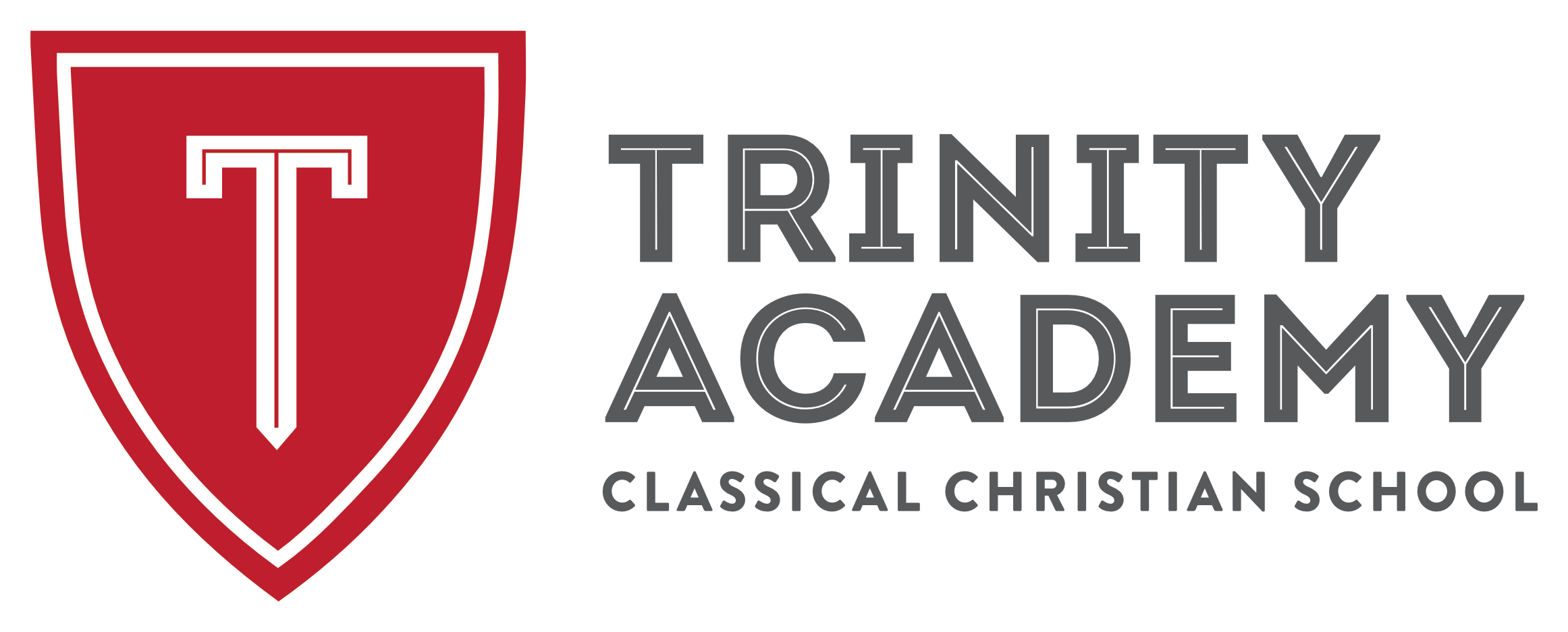CLASSICAL EDCUATION

Training the mind on HOW to think rather than WHAT to think.
Instruct the wise and they will be wiser still; teach the righteous and they will add to their learning. (Proverbs 9:9)
Trinity Academy’s view of classical education focuses on equipping children to learn; to elevate and to prepare them for life. One of the key intentions behind classical education is to distinguish between fiction and reality by training the mind how to think rather than what to think.
Classical Education
Integration
Trinity Academy integrates the two classical education systems found in the traditions of Western culture, classical liberal arts and mechanical arts. Classical education honors history, but does not reject present advances in any subject. The
present is studied, sitting under the tutelage of the past.
Process
The classical approach employs rigorous mental discipline in learning. Classical education seeks to emphasize that all knowledge is unified. This means that every subject has relevance for every other subject, and thus the well-trained mind looks for the core principles of wisdom from which it can learn all subsequent knowledge. Practically this means that subjects are not taught in isolation but rather as an integrated whole. For example, a first grader or a fifth grader is not taught with merely the completion of first grade or fifth grade as the end goal. The goal of a classical curriculum is to ultimately transition the student into a self-teacher with an understanding of not only how to complete a course of study, but how to learn.
Focus
Trinity Academy focuses on organized and integrated learning of all subjects and provides the tools for clear thinking and
persuasive expression. As students begin applying these tools, they will be introduced to the practical application of knowledge, logic,
and rhetoric in all subjects, including the fields of science, technology, engineering, and mathematics.
- Early Years (Grammar School) – Provides a strong emphasis on language; origins, structure, and proper usage; introduces
other subjects set against a historical backdrop. - Middle Years (Logic School) – Develops skills in the proper organization of language and thought (logic and reasoning);
Fills in facts and application in basic fields of knowledge - Late Years (Rhetoric School) – Teaches persuasive and effectual use of language and thought (rhetoric); integrates the
application of knowledge and understanding across varied disciplines.
Methods and Charactistics
(broken down by approximate age group)Beginning Grammar
Ages 4-8
Student Characteristics
- Enthusiastic about learning
- Enjoy games, songs, stories, projects
- Have short attention spans
- Learn through multi-sensory activities (touch, taste, smell, see, hear)
- Imaginative
- Creative
Teaching Methods
- Songs, recitations, and chants
- Guided discovery
- Learning games
- Painting, coloring, building, and creating
- Short, creative projects
- Multi-sensory activities and use of tactile
manipulatives to illustrate concepts - Show and tell
- Drama
- Hearing, reading, and telling stories
- Purposeful field trips
Grammar
Ages 9-11
Student Characteristics
- Excited about new and interesting facts
- Enjoy games, songs, stories, projects
- Like chants, clever word usage, and jokes
- Like to explain, solve problems, and talk
- Can relate personal experiences to topics
- Tell stories
- Like collecting, organizing, patterns
- Easily memorize
- Can easily assimilate another language
Teaching Methods
- Recitations, memorizations, and chants
- Multi-sensory activities and investigations
- Subject integration
- Make collections, displays, and models
- Oral/written presentations
- Fact drills and games
- Research and science projects
- Drama
- Purposeful field trips
Logic
Ages 12-15
Student Characteristics
- Development of independent thinking
- Propensity for argument
- Desire to make connections and applications
- Enjoy discussion
- Multi-sensory learning
- Inquisitive
- Desire for community
- Motivated by personal topics of interest and
appropriate challenge - Overly confident in personal knowledge (at times)
Teaching Methods
- Logic puzzles, informal and formal logic
- Socratic discussion
- Critical thinking activities
- Oral/written reports, including research
projects - Drama, reenactment, and poetry
- Evaluate and critique (with guidelines)
- Collaborative group work
- Times lines, charts, and maps
Rhetoric
Ages 16-18
Student Characteristics
- Responsible for independent learning and
management of time and materials - Desire to articulate and persuade others of
personal beliefs and opinions - Concerned with current events
- Heightened sense of justice and equity
- Can synthesize ideas
- Generally idealistic
Teaching Methods
- Drama, oral presentations, poetry
- Integration of disciplines, synthesis of
ideas - Focus on original sources, classical works,
historical speeches, and current events - Debate
- Socratic discussion
- Construction and public defense of theses
- Oral and Written reports
- Evaluation and Critique
Additional Reading
An Introduction to Classical Education by Christopher A. Perrin M.Div., Ph.D.


